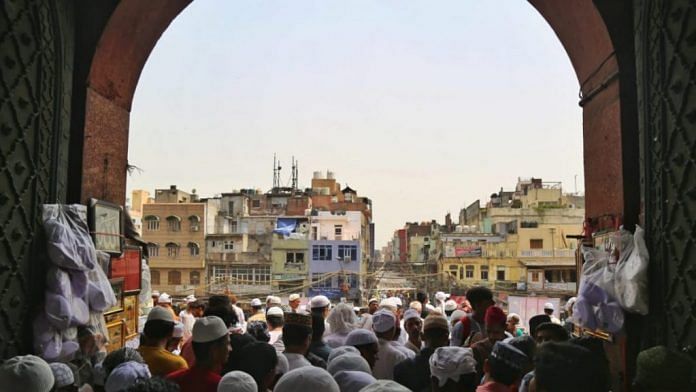Apart from Kashmir, where the Muslim population is highest in India, Muslims are in minority. Many Muslims in north India face serious problems such as exploitation and religious discrimination. Even the Urdu language is violated by those who are non-Muslims or cannot speak it. Muslims usually do not hold any top rank in the country’s capitalist or industrialist class. Many of them are employed as artisans, craftspersons and so on, in urban India, and they are economically backward, due to which their unemployment is rising significantly (Habib, Khan and Singh, 1976).
After the abolition of the Zamindari system, in many parts of the country, especially in Uttar Pradesh, minority Muslims were severely affected because most of them worked under Muslim Zamindars (Habib, Khan and Singh, 1976). There are many landlords, merchants, farmers, middlemen who politically continue to dominate the Indian Muslim community and oppress other Muslims (Habib, Khan and Singh, 1976). Due to the backwardness of their economic class, most of them are unable to get proper education or jobs. There is a threat to their life and property, they have had to face communal riots, and discrimination from public services. The police also sometimes fail to safeguard their integrity.
I think there is a need to break the moral shackles around minority Muslims in India. Every religion has its own cultural identity, but unfortunately, the weaker members are dominated by higher social, economic and political classes, which makes their life miserable. They don’t have the freedom or are scared to represent themselves and their religion. It is the responsibility of the State to appreciate and acknowledge their identity because they are also a part of the country and are contributing towards its growth and development. If a section of people living in a society is devoid of their own freedom and identity then how will society develop socially, politically and economically? This will cause instability and conflict in the society through communal riots and will have negative effect on its development. This will cause a rise in the distrust between the State and minority Muslims.
Also read: India can’t alienate its 20 crore Muslims, not when Taliban are finding legitimacy, not ever
They are backward in terms of their socio-economic background, because of which they lack sufficient skills and knowledge and are not able to compete in the market. I think policies should be framed in such a way that they can recognise, respect and encourage minorities. The country cannot develop successfully until there is unity among people. Society is evolving, and we cannot suppress the cultural identity of any group, especially minorities, and expect positive development. I think active participation of people can be involved in certain decision-making. There is a need to respect cultural differences, and no culture is inferior.
Sometimes certain political and economic environment may create an atmosphere of conflict between minorities because they can be manipulated in exchange for benefits. Interests of the minorities should be taken into consideration, but it should not hamper the objectives of development. So, policies need to ensure that these groups of people have voice, knowledge and skills. They should be free to express themselves without hiding their identity. Torturing people, violating human rights, forced assimilation will have a negative impact.
I think everybody should have the freedom to express themselves so that they can freely express their concern, problems and fear. Emphasis should be on the protection of fundamental human rights. There is a need to understand their values, practices and ideas. The development of a society is in the hands of its own people, so unless people themselves are free to express their cultural identity, society cannot develop.
Aiswariya Pandey is a student at XIM University, Bhubaneswar. Views are personal.



